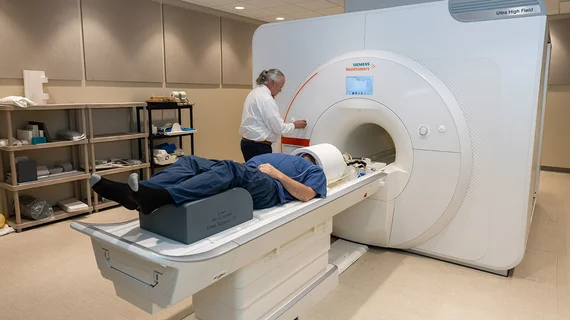University charts a world’s first with clinical use of new $9M 7T MRI system
A U.S. academic institution is charting what it says is a world’s first with the clinical deployment of a new $9 million 7T MRI system.
Alabama-based Auburn University announced the milestone on Tuesday with the first field-installed, parallel transmit, clinically approved Terra.X 7 Tesla magnetic resonance imaging scanner. The U.S. Food and Drug Administration recently certified the machine for use on clinical patients, offering expanded capabilities compared to the institution’s previous 7T machine.
“Today, we can say the best MRI scanner in the world is sitting here in the Research Park in Auburn,” Steve Taylor, PhD, senior VP for research and economic development, said in a March 26 announcement "Impactful, multidisciplinary research remains one of the foundations of our rich history as a university, and the door is now open to creative explorations into neuroscience that we, nor peer institutions, could previously pursue.”
The Siemens Magnetom 7T scanner utilizes dedicated radiofrequency sodium coils and parallel transmit technology—a “stark” difference from older models, AU said. With the former, physicians can measure how much sodium is in the brain, regionally, allowing them to identify abnormalities and study electrical signaling. Housed in the Samuel Ginn College of Engineering's Neuroimaging Center, the school plans to use it primarily for brain and knee imaging. Clinical areas of focus will include epilepsy, multiple sclerosis and other disorders, according to Thomas Denney, PhD, who leads the center.
“The university is sitting on a gold mine in terms of data and capabilities,” Denney said in the announcement. “This allows us to play in a sandbox that we couldn't play in before.”
Auburn University previously installed a 7T MRI system in 2021, which was for investigational purposes only.

